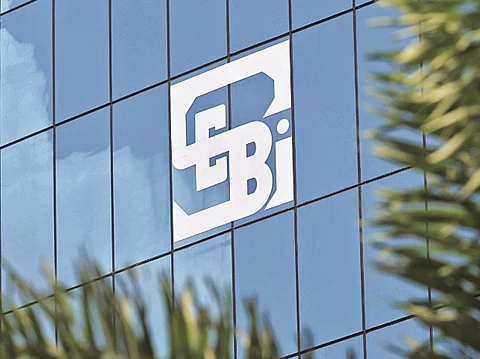

Investors as well as other stakeholders place the non-financial disclosures paramount to the financial disclosures of an industry. While financial disclosures are mandatory in nature, non-financial disclosures are largely reported voluntarily and on increased demand by stakeholders.
Several reporting standards are accepted internationally for reporting non-financial parameters. These include Global Reporting Initiative (GRI), Sustainability Accounting Standards Board (SASB), Task Force on Climate-related Financial Disclosures (TCFD), among others.
Such disclosures help entities identify risks, opportunities and possible trajectories for sustainable and inclusive growth. Experts believe these disclosures may help ‘strengthen the climate commitments, accelerate decarbonisation and attract green investment’ for businesses.
Based on the premise, the Federation of Indian Chambers of Commerce and Industry (FICCI) organised a side event in Glasgow at the 26th Conference of the Parties (CoP26) to the United Nations Framework Convention on Climate Change, where the expert panel discussed role of ‘Business Responsibility and Sustainability Report’ (BRSR) in driving climate actions in India.
The Securities and Exchange Board of India (SEBI) introduced BRSR, a reporting mechanism, vide circular dated May 10, 2021. It is a standardised reporting format that will give a baseline to draw comparison between environmental, social and governance (ESG) goals across companies and sectors.
Gyaneshwar Singh, joint secretary, Government of India, one of the panelists at the side-event (by FICCI) stated that the “disclosures sought under the BRSR will provide much-needed uniformity as it draws inputs from global sustainability reporting frameworks (GRI, CDP, SASB, TCFD recommendations and Integrated Reporting)”.
At present, the top 1,000 listed entities (as per market capitalisation) have to voluntarily disclose the required information according to the new standards in financial year 2021-2022. It is mandatory for the same companies to report according to BRSR in the next financial year (2022-2023).
What is BRSR?
Business Responsibility and Sustainability Report is framed around three aspirations: Adapting to and mitigating climate change impact, inclusive growth and transitioning to a sustainable economy.
The disclosures are based on ESG parameters in BRSR and therefore, are an up-scale from its predecessor, BRR (Business Responsibility Reporting). It incorporates several key performance indicators of the international frameworks to bring it on par with global ESG reporting trends.
The disclosures under BRSR have been broadly segregated into three sections: General disclosures, management disclosures and principle-wise performance disclosures (nine principles in total).
These three sections outline the scope of disclosures to be made by an entity.
The sections govern concerns such as details of business activities and their locations; details on manpower employed by the company; transparency and disclosure compliances; entity’s material responsible business conduct issue; structures, policies and processes put in place towards adopting the principles of national guidelines for responsible business conduct and its core elements.
It also gives a detailed matrix for the entities to demonstrate how their key processes and decisions align with the nine principles of BRSR.
The key indicators include data on training programs conducted, environmental data on energy, emissions, water and waste, social impact generated by the company, health data of the employees, human rights, etc.
These disclosures are accompanied with a guidance document that details the scope of each disclosure to be made by an entity. For example, in the indicator ‘details of water discharged’, the guidance documents expounds on the definition of discharged water and recommend that the entity disclose the treatment stages and methodology.
Navneet Manot, managing director, HDFC AMC, one of the panelists at the side-event organised by FICCI at COP26, said the BRSR is a step forward in the right direction.
He added: “Investors are eagerly looking forward to engaging with companies complying with mandatory ESG disclosures, giving businesses access to capital and also enable investors to take financial decisions based on the high-quality data from BRSR”.
Can disclosures drive sustainability?
Environment, social and governance aspects were first assimilated in the business models in India 2009 with the introduction of national voluntary guidelines by the Ministry of Corporate Affairs.
Subsequently, other frameworks were introduced time and again to incorporate the concept of ESG into business reporting regimen. The latest framework, BRSR, is believed to be more comprehensive and relies more on quantitative disclosures.
BRSR, once mandatory, will ensure that company-wise ESG data is available on yearly basis. There are, however, a few drawbacks in the current reporting system.
One, there is no benchmark against which the parameters are to be assessed. Indicators will be of no use for a common stakeholder and just act as another data point, without a benchmark on reporting of key performance.
The unit of disclosure for Scope 3 emissions, for example, shall be given in metric tonnes of carbon dioxide equivalent. This information may not be useful for a common person unless there is a scale quantifying the emissions as low, medium and high.
Second, the information available will be company-specific and not plant-specific. Therefore, the aggregates for a parameter such as carbon emissions may give a skewed picture.
A company may have two or more sectors under its umbrella, the company level reporting of parameters (such as energy consumption, water withdrawal, etc.) will not disclose the plant that may be contributing the most to emissions, or in other words, flouting the most on the ESG indicators.
Ajay Tyagi, chairman, SEBI, said: “ESG investments need to be up-scaled by being mindful of greenwashing. Asset management companies should have a clause to invest only in securities having BRSR disclosures”.
BRSR may not be adequate proofing against ‘greenwashing’ by entities. The company-level reporting, especially for environmental data points, may mask the actual on-ground reality.
It, therefore, may not be meaningful in identifying the areas for improvement. Nivit Kumar Yadav, director, industrial pollution unit, Centre for Science and Environment, said the new reporting framework is required to bring all business across all sectors on board.
He, however, expressed apprehension about its efficacy in pushing for ‘green’ and ‘clean’ business as only centralised data remains the sole focus of reporting. He advocated for sector-specific and plant-level information to be disclosed for all parameters for policy decisions.